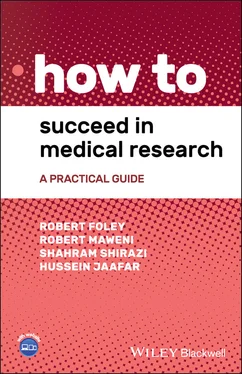This edition first published 2021
© 2021 John Wiley & Sons Ltd
All rights reserved. No part of this publication may be reproduced, stored in a retrieval system, or transmitted, in any form or by any means, electronic, mechanical, photocopying, recording or otherwise, except as permitted by law. Advice on how to obtain permission to reuse material from this title is available at http://www.wiley.com/go/permissions.
The right of Robert Foley, Robert Maweni, Shahram Shirazi, and Hussein Jaafar to be identified as the authors of this work has been asserted in accordance with law.
Registered Office(s) John Wiley & Sons, Inc., 111 River Street, Hoboken, NJ 07030, USA John Wiley & Sons Ltd, The Atrium, Southern Gate, Chichester, West Sussex, PO19 8SQ, UK
Editorial Office 9600 Garsington Road, Oxford, OX4 2DQ, UK
For details of our global editorial offices, customer services, and more information about Wiley products visit us at www.wiley.com.
Wiley also publishes its books in a variety of electronic formats and by print‐on‐demand. Some content that appears in standard print versions of this book may not be available in other formats.
Limit of Liability/Disclaimer of Warranty The contents of this work are intended to further general scientific research, understanding, and discussion only and are not intended and should not be relied upon as recommending or promoting scientific method, diagnosis, or treatment by physicians for any particular patient. In view of ongoing research, equipment modifications, changes in governmental regulations, and the constant flow of information relating to the use of medicines, equipment, and devices, the reader is urged to review and evaluate the information provided in the package insert or instructions for each medicine, equipment, or device for, among other things, any changes in the instructions or indication of usage and for added warnings and precautions. While the publisher and authors have used their best efforts in preparing this work, they make no representations or warranties with respect to the accuracy or completeness of the contents of this work and specifically disclaim all warranties, including without limitation any implied warranties of merchantability or fitness for a particular purpose. No warranty may be created or extended by sales representatives, written sales materials or promotional statements for this work. The fact that an organization, website, or product is referred to in this work as a citation and/or potential source of further information does not mean that the publisher and authors endorse the information or services the organization, website, or product may provide or recommendations it may make. This work is sold with the understanding that the publisher is not engaged in rendering professional services. The advice and strategies contained herein may not be suitable for your situation. You should consult with a specialist where appropriate. Further, readers should be aware that websites listed in this work may have changed or disappeared between when this work was written and when it is read. Neither the publisher nor authors shall be liable for any loss of profit or any other commercial damages, including but not limited to special, incidental, consequential, or other damages.
Library of Congress Cataloging‐in‐Publication Data Names: Foley, Robert (Robert W.), author. | Maweni, Robert, author. | Shirazi, Shahram, author. | Jaafar, Hussein, author. Title: How to succeed in medical research : a practical guide / Robert Foley, Robert Maweni, Shahram Shirazi, Hussein Jaafar. Description: First edition. | Hoboken, NJ : Wiley‐Blackwell, 2021. | Includes bibliographical references and index. Identifiers: LCCN 2020045110 (print) | LCCN 2020045111 (ebook) | ISBN 9781119645498 (paperback) | ISBN 9781119645474 (adobe pdf) | ISBN 9781119645573 (epub) Subjects: MESH: Biomedical Research | Research Design | Ethics, Research | Research Report | Medical Writing Classification: LCC R852 (print) | LCC R852 (ebook) | NLM W 20.5 | DDC 610.72–dc23 LC record available at https://lccn.loc.gov/2020045110LC ebook record available at https://lccn.loc.gov/2020045111
Cover Design: Wiley
Cover Image: © TECHDESIGNWORK/Getty images
P. Ronan O’Connell
It is a great pleasure to write a foreword for a book written by one’s former students, even more so when the theme is How to Succeed in Medical Research: A Practical Guide . The authors kindly acknowledge the support and mentorship they have received. While such guidance is helpful, it is the authors themselves who are to be congratulated for their enthusiasm, altruism, and ambition. They have brought together their collective and varied experiences in a series of monographs that will prove invaluable to any trainee with an impulse to ask a question, enquire more deeply, or challenge perceived wisdom.
The authors have set out the sequential processes of defining a research question, obtaining requisite permissions, collecting and analysing data, presenting results, and synthesising conclusions, all essential steps for those embarking on a research project. The importance of a detailed literature review and critical appraisal before embarking on a project is invaluable advice. Indeed, many would consider the words of an Irish proverb ‘a good start is half the work’ apply as readily to research as to any other endeavour.
Such complexities are not for the fainthearted. Collaboratives such as STARSurg offer medical students opportunities to become involved in an established project. As the authors attest, the opportunity to participate in a research project is often the stimulus to continue and to develop lifelong interest. For the busy clinician, regional, national, and international collaborative and multicentre clinical trails can answer research questions beyond the ability of individual units.
Scientific writing requires discipline and the ability to distil the subject matter to its essence. While social media provide boundless opportunities for collaboration, information exchange, and public engagement, peer review publication remains the benchmark. Remember one good paper in a prestigious journal is worth many lesser publications. Rejection is common and upsetting, but the reader should take heart. All of us have been there, thus the importance of resilience as set out in the last chapter.
For those embarking on a project, do not be afraid to start, and enjoy the satisfaction of answering the questions you have asked.
P. Ronan O’Connell, MD, FRCSI, FRCPS (Glas), FRCS (Edin), FRCS (Eng), FCSHK
President Royal College of Surgeons in Ireland
Emeritus Professor of Surgery, University College Dublin
Over the last few decades, there has been a push towards evidence‐based medicine, with the medical fraternity recognising and embracing the improved outcomes brought about by this approach. Central to this is the ability of healthcare professionals across all levels to be able to understand and undertake scientifically sound efforts to gather and learn from this evidence. This can be on a local level, for example, departmental audits, or on a national or international level, as is the case with large randomised controlled trials. Unfortunately, although academic medicine topics such as research and teaching are often discussed and taught at medical schools – many of which are at the forefront of international research efforts – medical students and junior doctors rarely get the chance to participate in any real‐world studies, or indeed critique any practice changing studies in a meaningful way for themselves. The situation in regard to teaching is similar. Peer‐to‐peer teaching opportunities may be limited to self‐arranged sessions with little to no guidance or formal training in how to do this key task, which will be crucial for the rest of one's career.
Читать дальше







![Коринн МакКей - How to Succeed as a Freelance Translator [calibre 3.46.0]](/books/402693/korinn-makkej-how-to-succeed-as-a-freelance-transl-thumb.webp)




